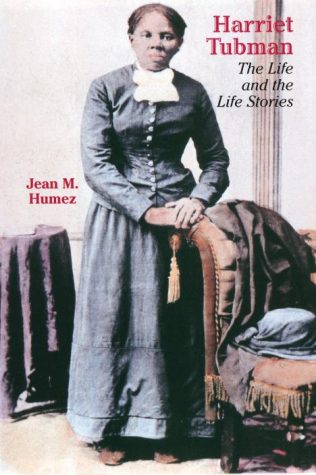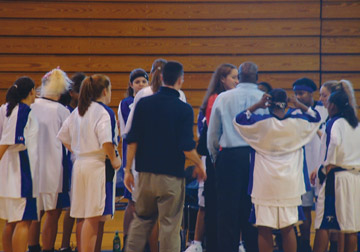Fagan Finds Fault with MassPIRG
October 8, 2003
On the television on top of a small cabinet, House Speaker Thomas Finneran speaks from his podium on a land-taking bill. In a few moments, a guardsman will be heard upstairs and downstairs announcing the roll call vote.
State Representative James Fagan (D-Tauton) looks up at the screen and then looks back. “I’ll have to take this soon,” he says. For a man who has probably shot to the top of an enemies list, Fagan looks calm. The enemies list belongs to the Massachusetts Public Interest Group (MassPIRG), an environmental lobby organization with chapters on over twenty campuses and often, canvassers on the streets in summer. It holds campaigns on campuses every year against hunger, homelessness, and global warming.
To earn this spot, Fagan has introduced a bill, called House 2400, which will switch opt-out fees to opt-in fees on students’ tuition bills and bar organizations that lobby for political change from any type of optional funding. One of the organizations affected is MassPIRG, with much of its funding dependent on the $6 fee. The other organization is The Mass Media, which is not a political organization. UMass Boston Student Senate members are currently trying to pass a resolution in support of the bill to send it on to the House.
Fagan, a 1969 graduate of Bridgewater State College (where several years ago the MassPIRG fee was overturned by a student referendum), sat down with The Mass Media to give a review of the situation.
Fagan: The law as [it’s] presently written, MassPIRG automatically gets money out of every student in Massachusetts higher education, whether it’s at the state university or state college. And in order to avoid that, a student would necessarily have to make what’s called a “negative check-off.” They would have to take an affirmative action to indicate that they did not want to pay this additional fee.
I think that that’s contrary to logic, and what should happen is that if someone chooses to support MassPIRG that they could make an affirmative check-off indicating their support rather than being required to say “No, I don’t want to pay this bill.”
Today, particularly where students in our state institutions of higher learning are facing increasingly higher fees across the boards, it’s absolutely unfair to give this type of advantage to an organization like MassPIRG. I mean, why don’t we do that for the National Rifle Association or the American Communist Party or some other similar group. It seems to me that the advantage that MassPIRG has is significantly unfair.
Mass Media: MassPIRG is framing this as an issue of student rights. They’re saying that the Legislature is interfering with the students’ rights to choose, since it’s put on the ballot every two years.
F: I assign MassPIRG the same level of credibility that I would give the bacteria that lives in the feces of a rabid dog.
MM: So you believe that the students’ rights [argument] is a false one?
F: …I fully believe that in a democratic society every organization or point of view should be given the opportunity to express itself, particularly in higher education, where people are supposed to develop and expose themselves to different types of philosophies and ideas and thoughts. I think it’s particularly important that everyone be given an equal place on the table. I think that MassPIRG has a very incestuous and therefore unfair position that they simply wish to protect.
I think that what happens now is that students, when they’re filling out their forms and doing all the rest of those things, they’re so busy with so many things they’re involved in, your college applications and enrollment, that it’s very easy to overlook the fact that MassPIRG, for no good reason, takes five dollars of your money every semester unless you choose to say, “No, I don’t choose to give.” I think the reverse would be much fairer. That if it’s gonna be on there at all, it should be a check-off that says, “I choose to pay an additional five-dollar fee to support MassPIRG.”
I think MassPIRG is the first to recognize that the likelihood of many students doing that on their own is significantly less than the situation they find themselves in now. And that’s why they’re fighting so vehemently against it.
MM: Because it would ultimately completely damage their funding.
F: If people understand what it is they do or don’t do they might be much less inclined to fund them at all. But if you’re getting it handed to you on a platter, people have to take a significant action.
First of all, having an awareness of what it is and then taking affirmative action to eliminate it, it’s happening automatically to them, they’re less likely to do that… If somebody’s going to take five bucks from me, I want to know where it’s going. I don’t want to just give it to them without a fight. My five bucks is important to me.
MM: And this was prompted by you having six sons, you said?
F: Absolutely. I have three-Three of my children have gone through public higher education. Since I pay the bill I actually do look at the bill and all of a sudden I noted that, you know, five dollars of my money was going towards a fee automatically without my making any decision.
MM: Now, the bill, does it affect just MassPIRG, or waivable fees, all waivable fees?
F: No, MassPIRG. MassPIRG gets – they’re only one who gets the money automatically.
MM: Well, at UMass Boston, the school newspaper [The Mass Media] also has an optional fee, it’s a ten dollar one.
F: But it’s optional.
MM: Oh, I mean, it’s waivable. It’s on the same line as MassPIRG.
F: As I understand it, however, at UMass Boston, you have a check-off if you want to have to pay the fee.
MM: It’s the same thing as MassPIRG.
F: Negative check-off.
MM: So it’s just the whole concept-
F: I want to make an affirmative choice to spend my own money. I don’t need anybody-I’m already married, I don’t need anybody else’s help in any way.






















































